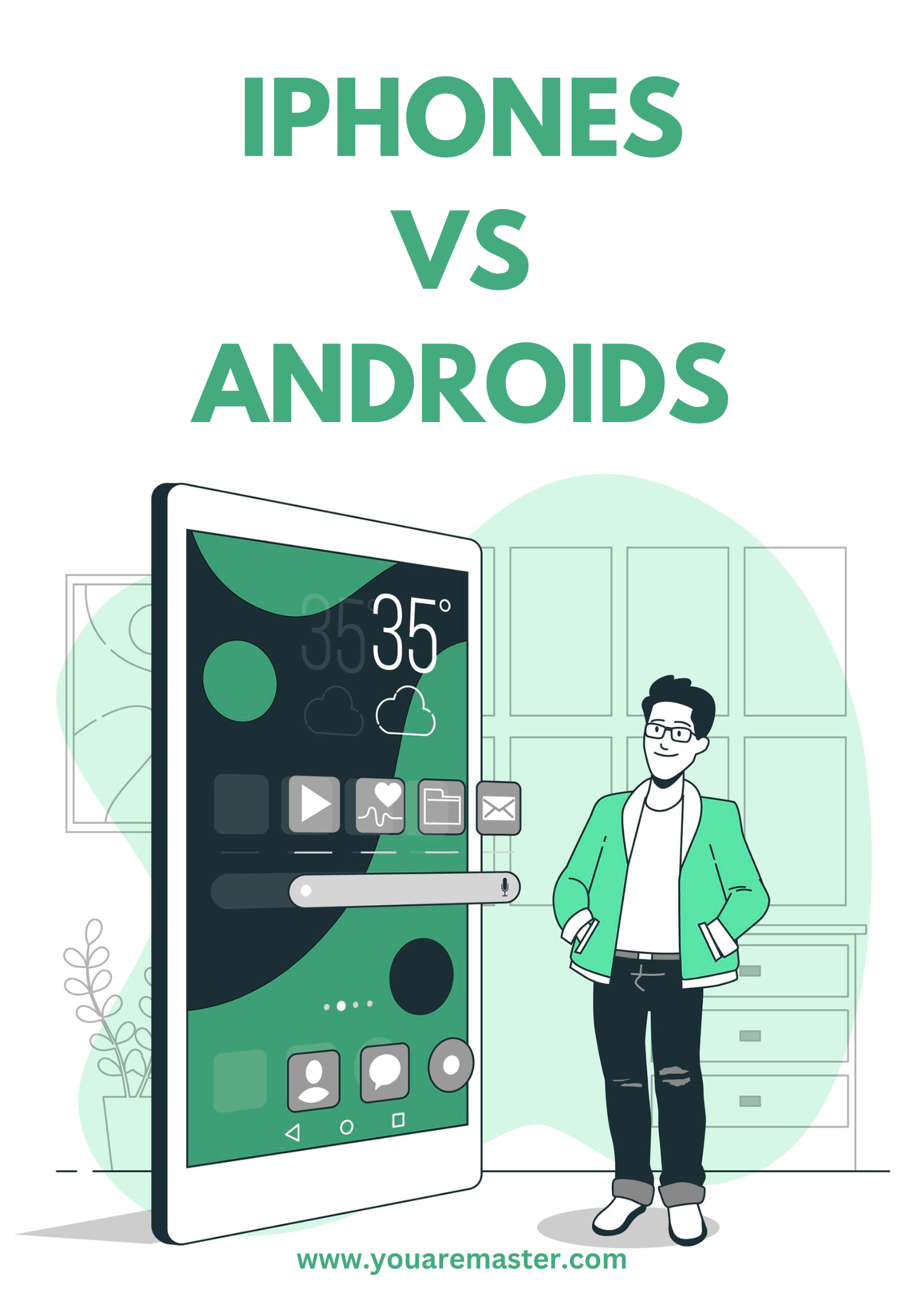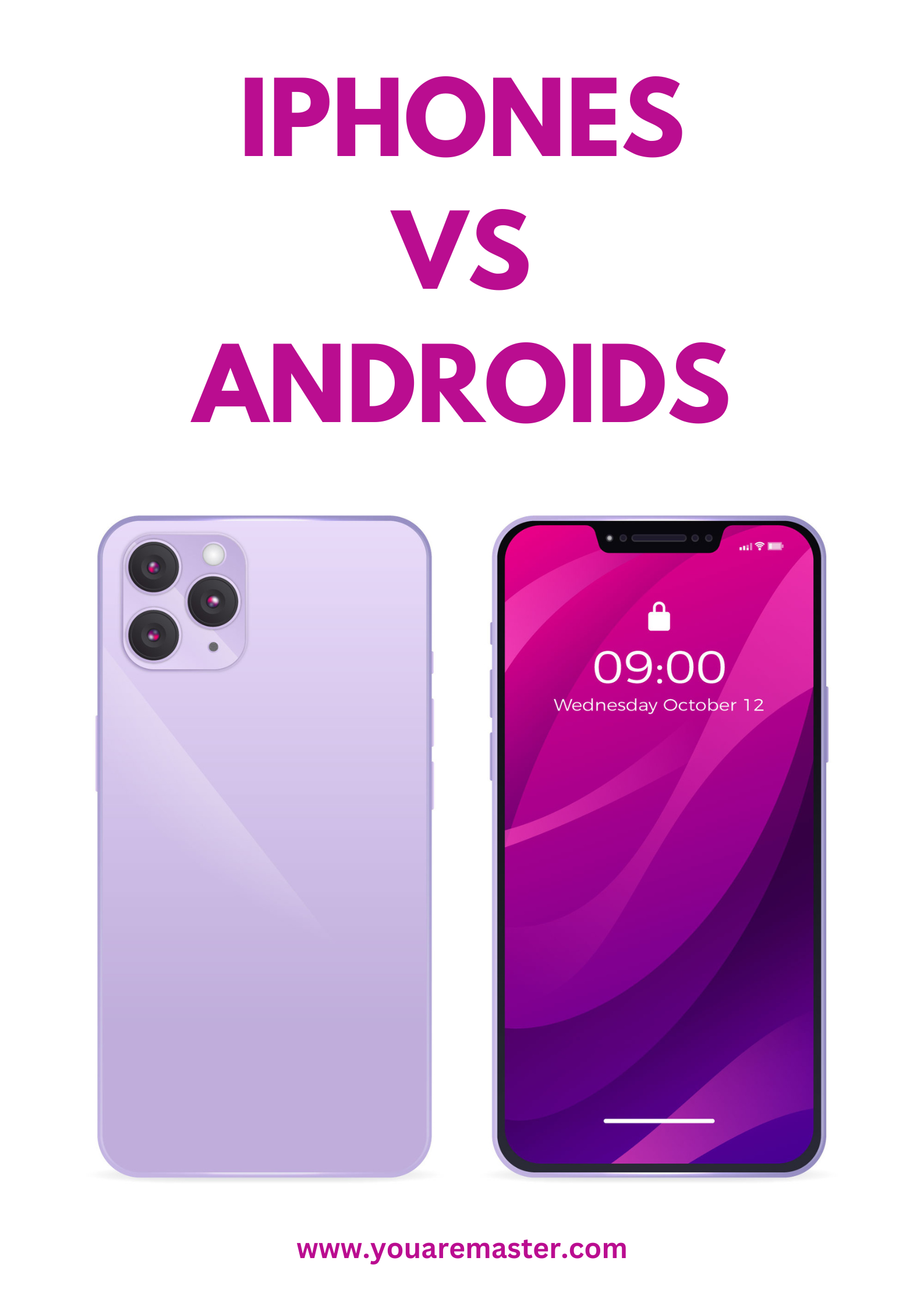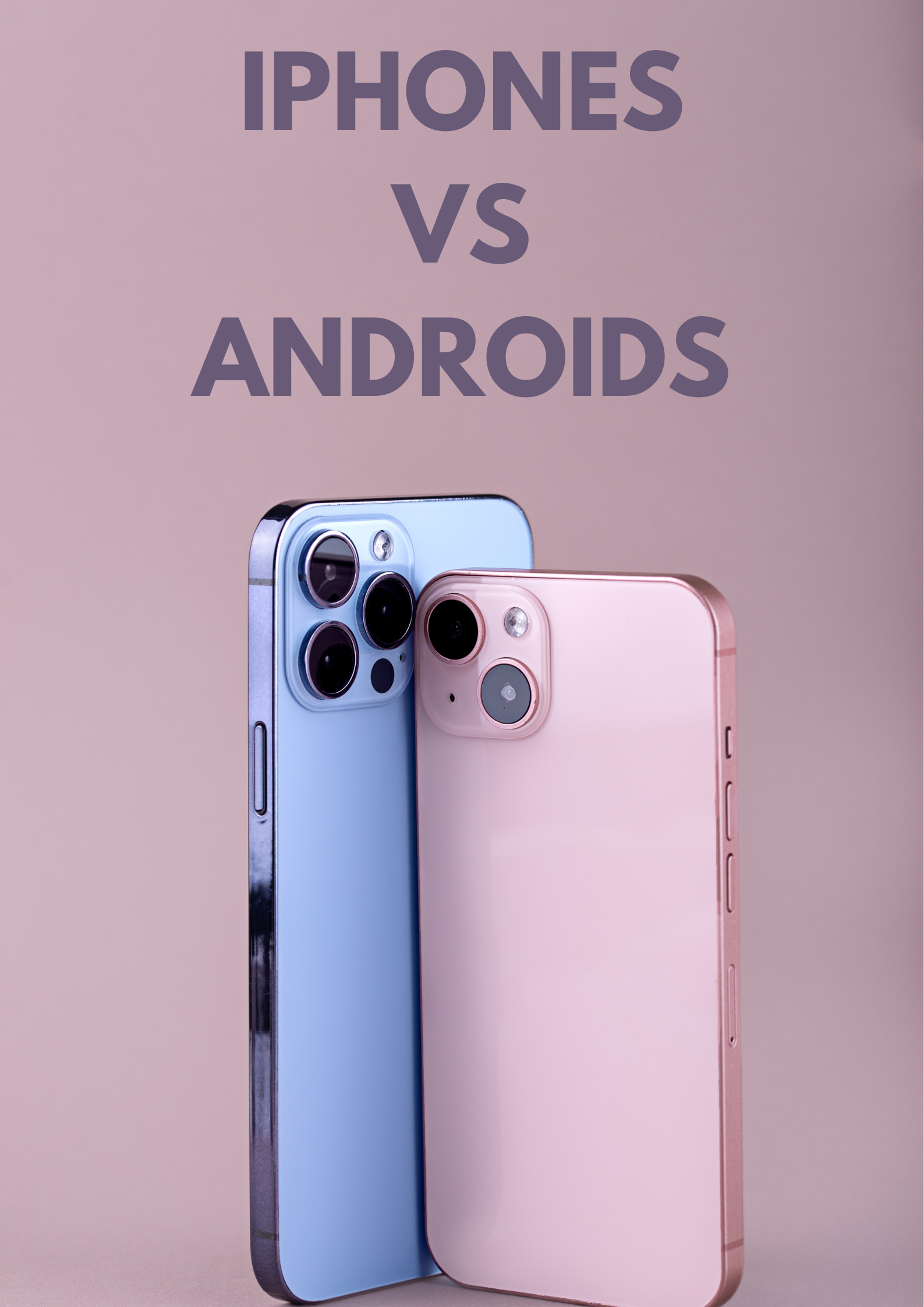iPhones vs Androids: Making the Right Choice
Between iPhones and Androids, there is a persistent disagreement in today’s world dominated by smartphones. With unique features and benefits, every platform serves different goals and interests. To aid you in making a choice, let’s explore the subtle differences between each.
1. Introduction to iPhone vs Android
When it comes to smartphones, iPhones vs Androids stand out as the top contenders. Users across the globe enjoy distinct experiences with iPhones, developed by Apple, and Androids, manufactured by various manufacturers.

2. Strengths of iPhone
User-friendly Interface
iPhones are known for their intuitive user interface. The iPhone’s operating system, iOS, is well known for its simplicity, making it accessible to users of all technical backgrounds.
Strong App Integration
Due to Apple’s tight control over both hardware and software, apps integrate seamlessly. Consequently, iPhone applications are often well optimized, resulting in a smooth and efficient experience for users.
Longer Software Updates
iPhone owners can enjoy software updates for several years after their devices are released. Compared to many Android counterparts, this prolonged support improves security and ensures optimal performance.
Smooth Performance
iPhones typically perform smoothly despite potentially lower specifications on paper. As a result of optimizing hardware and software, navigation is fluid and tasks are executed quickly.

3. Weaknesses of iPhone
Limited Customization
Although iPhones are incredibly simple, they don’t have as many customization choices as Android smartphones. There are fewer options for users to customize the look and feel of their iPhones.
Closed Ecosystem
The closed ecosystem of Apple is well-known, meaning that iPhones are made to integrate easily with other Apple goods and services. This limits interoperability with devices that aren’t Apple, but it also guarantees a simplified user experience within the ecosystem.
Higher Price Point
Since iPhones are often more costly than many Android options, the quality experience they provide comes at a price. This higher price point can discourage buyers looking for more cheap solutions who are on a tight budget.

4. Strengths of Android
Affordability
Android’s cost is one of its best qualities. Android offers a broad selection of devices at a range of price points, so it can accommodate customers with a variety of budgets, including those seeking affordable solutions.
Open Ecosystem
Android provides a more open ecosystem in contrast to Apple’s closed one. Because of this versatility, users may integrate non-Google devices and services more easily, giving them more freedom and options.
Customization Options
Android is known for its wide customization options, giving users complete control over the look and feel of their devices. With third-party app stores and customizable home screens, Android gives users the flexibility to customise their experience to their liking.
Cutting-edge Features
Innovative camera systems and high-resolution screens are only two examples of the new features and technology that Android smartphones frequently pioneer. For those interested in technology who want to stay up to date, Android provides a platform full of innovative options.

5. Weaknesses of Android
Complexity
More freedom leads to more complexity. Many may find Android’s abundance of functionality and customization choices overwhelming, especially if they are unfamiliar with the platform. However, users may fully utilise Android with some effort and investigation.
Inconsistent Software Updates
Android smartphones could not receive upgrades for as long as iPhones do, in contrast to iPhones, which enjoy extended software support. Users of older devices may be more susceptible to security breaches and performance problems as a result of this disparity in software lifespan.
Varying App Quality
Because Android is an open-source platform, there can be wide variations in the quality of apps. Although there is a large number of apps available on the Google Play Store, their consistency and quality may not always be on pace with their iOS equivalents.

6. Factors to Consider When Choosing Between iPhone and Android
Numerous considerations are taken into consideration while choosing between the iPhones vs Androids. Think about your top goals, including compatibility with ecosystems, money, and user experience. Consider what matters to you more: price and customization for Android devices, or ease of use and integration for iPhone.
| Feature | iPhone | Android |
|---|---|---|
| User Interface | Simple and intuitive | Customizable and flexible |
| App Integration | Strong integration with optimized apps | Varying app quality and compatibility |
| Software Updates | Long-term support for updates | Inconsistent update timelines |
| Performance | Generally smooth and optimized | Performance varies based on device specifications |
| Customization | Limited customization options | Extensive customization capabilities |
| Ecosystem Compatibility | Seamless integration with other Apple products | Open ecosystem with wider device compatibility |
| Price | Typically more expensive | Available at various price points |
| Security | Regular software updates enhance security | Security can vary based on manufacturer and model |

7. Conclusion
There is no obvious victor in the ongoing conflict between Android and iPhone devices. Every platform has its own advantages and disadvantages and meets a variety of demands and tastes. It’s ultimately up to you to decide how important integration, cost, simplicity, or customization are.
Frequently Asked Questions (FAQs)
1. Which is better, iPhone or Android?
- The answer depends on personal preference and priorities. iPhones are known for their seamless integration with Apple’s ecosystem, sleek design, and user-friendly interface. Android devices offer more customization options, diverse hardware choices, and often come with advanced features.
2. Android vs iOS: What are the main differences?
- Android is an open-source operating system developed by Google, used by various manufacturers such as Samsung, Huawei, and OnePlus. iOS is a closed-source operating system developed by Apple exclusively for its devices. Android offers more flexibility for customization, while iOS provides a more uniform experience across devices.
3. Is Samsung better than Apple?
- Again, this depends on individual needs and preferences. Samsung manufactures Android devices known for their cutting-edge technology, innovative features, and a wide range of options. Apple, on the other hand, is praised for its seamless integration of hardware and software, high-quality build, and customer service. Both have their strengths and weaknesses.
4. Android vs iOS: Which is more secure?
- Both Android and iOS have robust security features, but they approach security differently. iOS is often perceived as more secure due to its closed ecosystem and stringent app review process. Android, being open-source, allows more flexibility but may face more security vulnerabilities due to the diversity of devices and manufacturers.
5. Is iPhone better than Android?
- “Better” is subjective and varies from person to person. iPhones are known for their premium build quality, optimized software, and long-term support. Android devices offer a wide range of options, including budget-friendly choices, and cater to diverse user preferences with features like expandable storage, headphone jacks, and customization options.


1 thought on “iPhones vs Androids- Quick guide No.1”